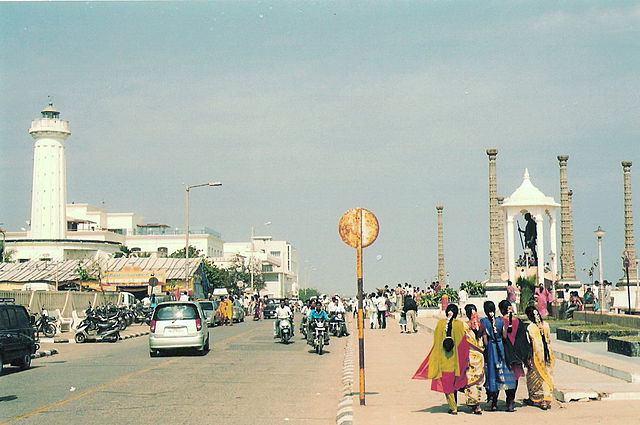Voor mij wordt de kracht van geloof nergens mooier beschreven dan in het boek Life of Pi van Yann Martel. Het verhaal gaat over Piscine, een 16-jarige jongen uit Puducherry, India. Door een schipbreuk maakt hij de meest gruwelijke dingen mee. Zijn liefde voor God sleept hem er doorheen:
The blackness would stir and eventually go away, and God would remain, a shining point of light in my heart. I would go on loving.
Het gedeelte dat ik vandaag wil delen is echter wat lichtvoetiger en komt uit het begin van het boek. Piscine’s ouders zijn hindoe, maar hij maakt ook kennis met het christendom en de islam. Dit doet hij met zoveel overtuiging dat hij al snel praktiserend christen, moslim en hindoe is. Als hij op een zondagmiddag met zijn ouders over de boulevard wandelt, slaat het noodlot toe: Ze komen de priester, de imam en de pandit tegen en Piscine’s driedubbele vroomheid komt aan het licht. De drie wijze mannen zijn ontsteld en beginnen een verhitte discussie over hun religies die drie bladzijden lang doorgaat.
Father raised his hands. “Gentlemen, gentlemen, please!” he interjected. “I would like to remind you there is freedom of practice in this country.”
Three apoplectic faces turned to him.
“Yes! Practice – singular!” the wise men screamed in unison. Three index fingers, like punctuation marks, jumped to attention in the air to emphasize their point.
They were not pleased at the unintended choral effect or the spontaneous unity of their gestures. Their fingers came down quickly, and they sighed and groaned each on his own. Father and Mother stared on, at a loss for words.
The pandit spoke first. “Mr. Patel, Piscine’s piety is admirable. In these troubled times it’s good to see a boy so keen on God. We all agree on that.” The imam and the priest nodded. “But he can’t be a Hindu, a Christian and a Muslim. It’s impossible. He must choose.”
“I don’t think it’s a crime, but I suppose you’re right,” Father replied.

Gandhi monument in Puducherry. (Bron: Wikimedia Commons, Aviad2001)
The three murmured agreement and looked heavenward, as did Father, whence they felt the decision must come. Mother looked at me.
A silence fell heavily on my shoulders.“Hmmm, Piscine?” Mother nudged me. “How do you feel about the question?”
“Bapu Gandhi said, ‘All religions are true.’ I just want to love God,” I blurted out, and looked down, red in the face.
My embarrassment was contagious. No one said anything. It happened that we were not far from the statue of Gandhi on the esplanade. Stick in hand, an impish smile on his lips, a twinkle in his eyes, the Mahatma walked. I fancy that he heard our conversation, but that he paid even greater attention to my heart. Father cleared his throat and said in a half-voice, “I suppose that’s what we’re all trying to do – love God.”
I thought it very funny that he should say that, he who hadn’t stepped into a temple with a serious intent since I had had the faculty of memory. But it seemed to do the trick. You can’t reprimand a boy for wanting to love God. The three wise men pulled away with stiff, grudging smiles on their faces.
